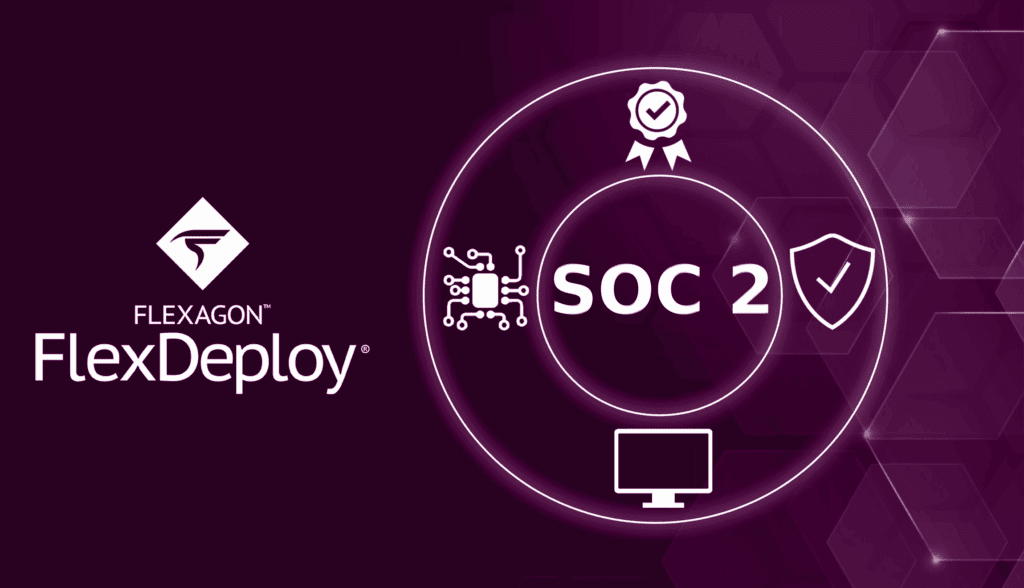Collaborate 2017
We were recently in Las Vegas for the annual Collaborate conference, an event co-hosted by the Independent Oracle Users Group (IOUG), the Oracle Applications Users Group (OAUG) and Quest International Users Group (Quest). This is an educational conference, aimed at helping users of the full family of Oracle business applications and database software gain greater value from their Oracle investments.
Given the focus of the conference, we met a lot of people who have and use E-Business Suite. As regular readers of our blog are aware, FlexDeploy has extensive out-of-the-box support for Oracle E-Business Suite. In addition to core build, deploy, and test, FlexDeploy also provides out of the box support for starting and stopping servers, online patching operations for EBS 12.1.3 and 12.2, and much more.
One thing we heard repeatedly from people we talked with, was their desire to either find a tool to help automate some of the processes that come with managing an E-Business Suite implementation, or to move away from their existing tools (Quest Stat or HP PPM/Kintana) and find a better option.
It’s no surprise that those who currently have manual processes can see the benefits that come with automation. Any time you can automate a process that was manual and tedious, you improve the speed, quality, and cost of doing that process.
For those that were looking to move away from an existing tool (either PPM or Stat) we heard four major areas where people were struggling; 1) tool flexibility, 2) support from the vendor, 3) breadth of support for technologies, 4) pricing.
Tool Flexibility
It’s no secret that PPM and Stat have been on the market for a long time, certainly longer than FlexDeploy. While that may give those tools some advantage, it also means that they were originally built a long time ago, and were built on an old and outdated framework. One person we talked with shared that they have one FTE whose full-time job is managing their PPM implementation and does all the Unix scripting they need to keep it functional. That employee is retiring in a year, and the manager has to either train someone else on their team in Unix, find and hire another person who can do the scripting, or get a new tool.
FlexDeploy, on the other hand, is a java based application that is flexible, lightweight, and customizable to meet your needs. We give users the option to put in place whatever controls and security make sense for their environment, whether that be very tightly controlled (approvals needed, windows set up for environments, notifications for various activities) or simply having notifications set up so a manager is informed when something is deployed to a Production environment. Aside from that, it has a modern interface and is easy to implement and configure which significantly shortens time to value. Plus, the tool requires about 5% of one FTE’s time to manage and maintain.
Support from the Vendor
We heard a handful of times from people that they were not getting the support needed from vendors, with one person saying their current tool is dying, and the vendor seems to be done supporting it.
At Flexagon, supporting our customers is a top priority, and we get complimented on it regularly. One customer went so far as to say “Not only do we value FlexDeploy, but we enjoy our partnership with Flexagon. I truly feel like they hear us, are willing to work with us to make the product better, and are incredibly responsive to issues and requests. The support and partnership has been wonderful; a first-class example of what customer/vendor relationships should be about.”
Breadth of Support for Technologies
PPM and Stat are essentially EBS-only tools. This means that users either have to use multiple tools (one for managing EBS changes, and another to automate these processes in other technologies) or they have some technologies which still require manual activities and scripting. This tool sprawl adds a layer of complexity, not to mention increases the cost to the IT organization.
FlexDeploy includes pre-built plugins for Oracle Database, Fusion Middleware, E-Business Suite, Cloud, and many open source and commercial technologies including Salesforce, Jira, and MuleSoft. As one customer said “FlexDeploy had us up and running in a matter of days and had all of the tools necessary to integrate into our broad Oracle technology footprint. It is more than a deployment engine, it’s an orchestration engine that provides consistent project execution.” There is no question that FlexDeploy is an enterprise platform, and for many customers is the only tool they need to automate software delivery processes.
Conclusion
When we first got into business, we set out to create a comprehensive and integrated platform that could be quickly and easily implemented to bring automation, controls, and visibility to IT teams. We wanted FlexDeploy to support traditional and continuous delivery, deploy everywhere, and be scalable from SMB to the largest enterprises. We were painfully familiar with the challenges that come with the software delivery lifecycle having lived many of those challenges ourselves over the course of our careers. The existing tools on the market were narrowly focused, supported only the largest enterprises, required too many tools to support the entire lifecycle, and were too costly and time consuming to implement and support. We decided there was a better way, and FlexDeploy development was underway.
Fast-forward a few years and FlexDeploy is a market leading DevOps and Continuous Delivery product. It is both comprehensive (one tool across the entire Build, Deploy, and Release tool-chain) and integrated (plugins and integrations for myriad commercial and open-source tools), supporting companies from the smallest contenders to the largest enterprises. Customers can adopt FlexDeploy regardless of where they are on the journey from traditional to continuous delivery, and implementations are fast and painless, getting companies up and running quickly.
We think about this problem space, and the tool needed to solve it, differently than other players in the market. Let us show you the difference.


